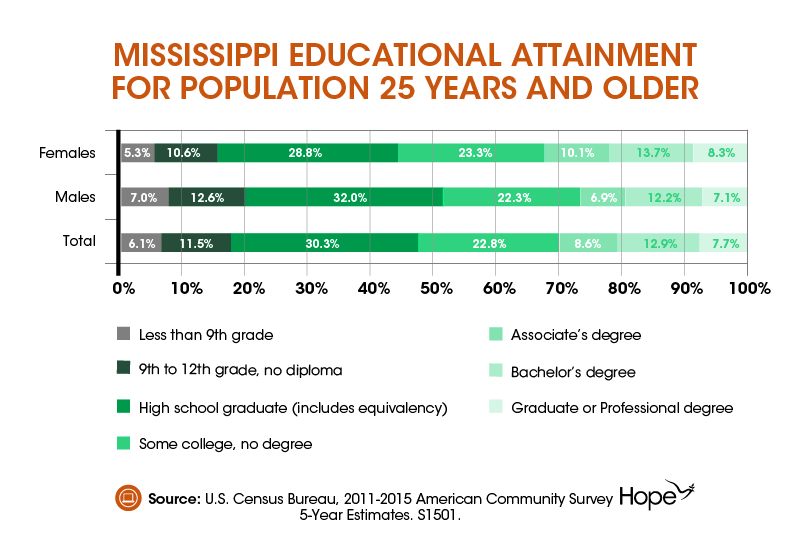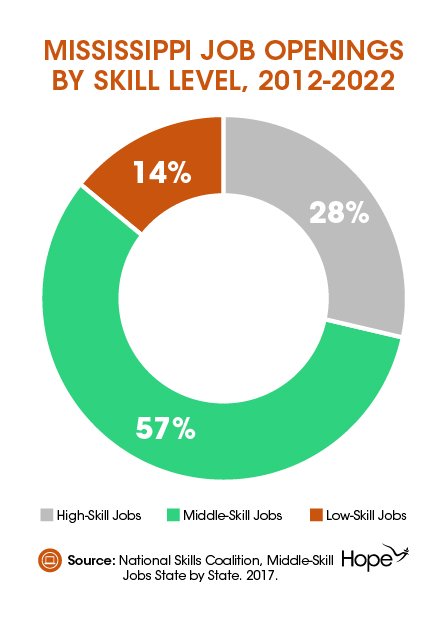Future Demands on Today’s Workforce
February 23rd, 2017
Furthering economic growth and keeping Mississippi competitive in the global economy requires development of the state’s current and future workforce. As technology continually advances, an educated and skilled workforce is crucial to meeting employer demand and supporting workers hoping to secure good-paying jobs. However, based on U.S. Census Bureau educational attainment data, Mississippians are not keeping pace with labor market demands for a highly-skilled, highly educated workforce.
Click to enlarge
Nearly half (47.9 percent) of Mississippians over age 25 have only a high school equivalency or less. Fifty years ago, this level of education was sufficient to secure a high-paying manufacturing job (or equivalent) complete with a full benefits package and a comfortable middle-class existence. Today, these same middle-skill jobs – typically technical positions, which pay higher-than-average wages and salaries plus benefits – all require at least a high school diploma, with many requiring additional schooling, specialization and training.
Changes in technology in new and existing sectors, such as advanced manufacturing, health care, transportation, distribution and logistics (TDL) and others, have changed the demands on Mississippi’s workforce. To remain competitive for today’s quality, high-paying jobs, Mississippi workers must be educated beyond high school, trained in an in-demand skill, or both. National Skills Coalition estimates 57 percent of Mississippi job openings between 2012 and 2022 will be middle-skill, while Mississippi Department of Employment Security (MDES) anticipates over 33,000 new and replacement workers will be needed annually to keep up with demand. Continued demand for skilled workers will require sustained investment in training programs that upskill the existing workforce and prepares the future workforce for emerging employment opportunities.
Mississippi’s economic potential is vested in its workforce. Programs and policies that support skills training through workforce development are vital investments in working families and the state economy.









